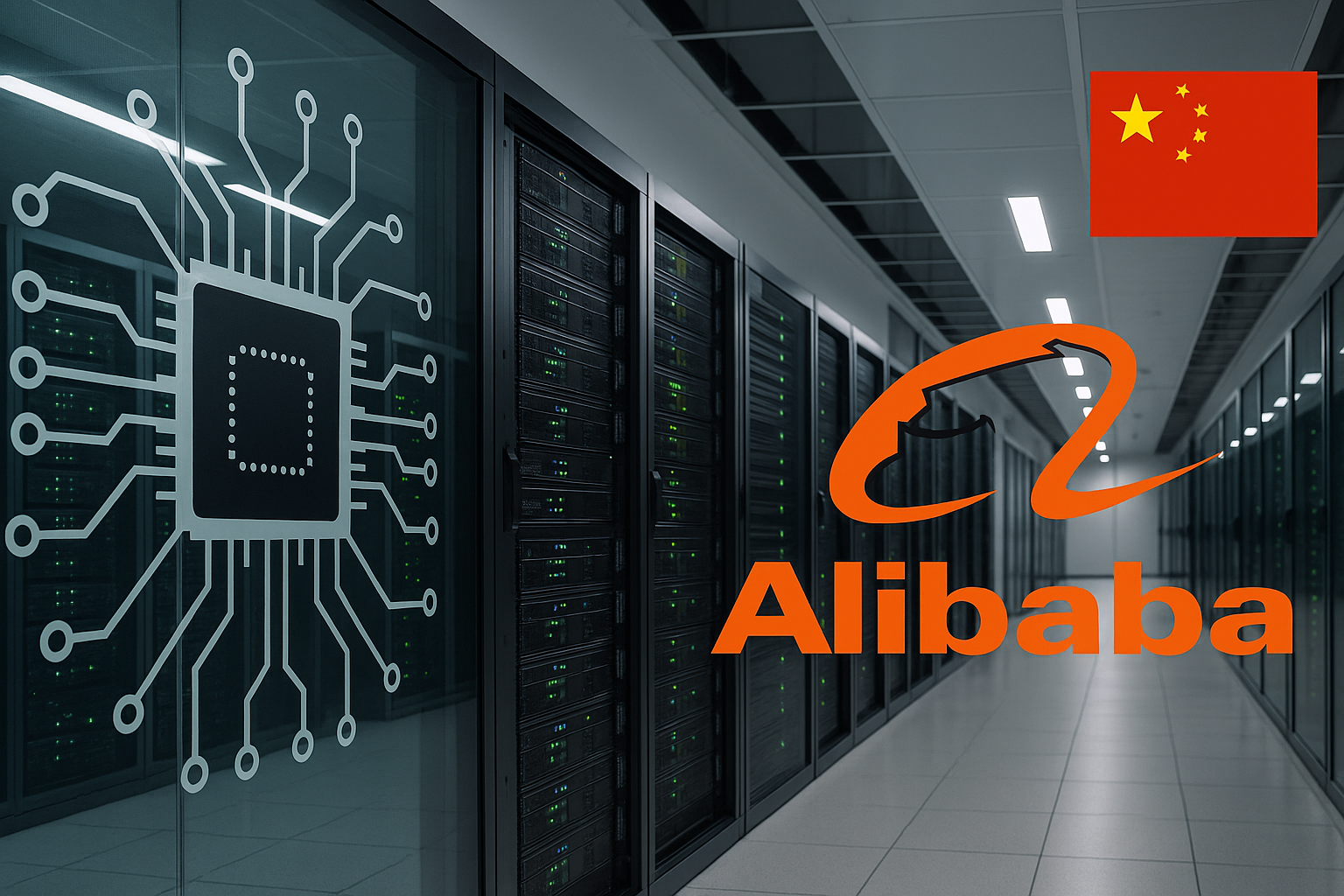Alibaba Shares Soar After Landing China Unicom as Key Customer for AI Chips
By Tredu.com • 9/17/2025
Tredu

China Unicom deal boosts Alibaba’s in-house AI chip strategy amid intensifying U.S.-China tech rivalry
Alibaba shares jumped after state media reported that China Unicom will deploy Alibaba’s AI accelerators (from its T-Head / Pingtouge unit) in a major new data center in northwestern China, marking a significant win for Alibaba’s chip ambitions.
Deal Details & Strategic Context
- China Unicom, one of China’s largest telecom operators, is set to use Alibaba’s in-house AI chip accelerators alongside other domestic chip suppliers in the new data center in Xining, Qinghai.
- The chips are from Alibaba’s T-Head (also known as Pingtouge) unit, designed to reduce reliance on foreign hardware and align with China’s broader push for self-sufficiency in key AI infrastructure.
- Approximately 72% of the nearly 23,000 chips in use in the project are supplied by Alibaba, reflecting not just symbolic but scale support for its chip-making capacity.
Market Reaction & Implications
- Stock movement: Alibaba shares rose sharply, both in Hong Kong and in other markets, as investors cheered the new customer win and the validation of its domestic AI chip pipeline.
- Tech supply chain dynamics: The deal reinforces demand for Chinese chip firms, spurring competition among domestic chipmakers. It may encourage increased investment in R&D, capacity building, and scaling of chip production domestically.
- Trade & regulatory tailwinds: With U.S. export restrictions tightening for advanced AI chips, China is favoring internal supply. Success of Alibaba's chips in China Unicom’s deployment may accelerate regulatory support, subsidies, or favorable policy for domestic semiconductors.
- Competitive pressure: Alibaba’s chip win adds pressure on both foreign chip suppliers (like Nvidia) and domestic rivals to match performance, reliability, and scale. The ability to compete on both hardware and software edges becomes more critical.
Risks & What to Watch
- Performance & deployment risk: How well the chips perform under production conditions (efficiency, reliability, latency) will matter. Early glitches or delays could dent confidence.
- Margin pressure: Developing and producing AI chip hardware is capital intensive. Alibaba risks absorbing high costs before sufficiently monetizing these chips via scale or premium contracts.
- Policy shifts: Chinese government policy is favorable for domestic production, but shifts in trade relations, export controls, or regulatory oversight could affect cross-border operations or foreign investment sentiment.
- Global regulatory and trade risk: Moves by China to restrict use of foreign AI chips (as some reports suggest banning Nvidia chip procurement) might provoke pushback or reduce foreign vendor access, raising trade or legal risk.
In summary, Alibaba’s deal with China Unicom marks a milestone for its AI chip ambitions, representing both strategic validation and material scale. By securing a major domestic customer, Alibaba strengthens its positioning in China’s fast-evolving AI infrastructure landscape. The core theme: domestically built AI chips are central to China’s strategy, and Alibaba is stepping into a leadership role with real market consequences.

How to Trade Like a Pro
Unlock the secrets of professional trading with our comprehensive guide. Discover proven strategies, risk management techniques, and market insights that will help you navigate the financial markets confidently and successfully.


